Neither will we blame greatly that word of Cromwell's to them; which was so blamed: "If the King should meet me in battle, I would kill the King."Why not? These words were spoken to men who stood as before a Higher than Kings. They had set more than their own lives on the cast. The Parliament may call it, in official language, a fighting "_for_ the King;" but we, for our share, cannot understand that. To us it is no dilettante work, no sleek officiality; it is sheer rough death and earnest. They have brought it to the calling-forth of War; horrid internecine fight, man grappling with man in fire-eyed rage,--the _infernal_ element in man called forth, to try it by that! _Do_ that therefore; since that is the thing to be done.--The successes of Cromwell seem to me a very natural thing! Since he was not shot in battle, they were an inevitable thing. That such a man, with the eye to see, with the heart to dare, should advance, from post to post, from victory to victory, till the Huntingdon Farmer became, by whatever name you might call him, the acknowledged Strongest Man in England, virtually the King of England, requires no magic to explain it!--Truly it is a sad thing for a people, as for a man, to fall into Scepticism, into dilettantism, insincerity; not to know Sincerity when they see it. For this world, and for all worlds, what curse is so fatal? The heart lying dead, the eye cannot see. What intellect remains is merely the _vulpine_ intellect. That a true _King_ be sent them is of small use; they do not know him when sent. They say scornfully, Is this your King? The Hero wastes his heroic faculty in bootless contradiction from the unworthy;and can accomplish little. For himself he does accomplish a heroic life, which is much, which is all; but for the world he accomplishes comparatively nothing. The wild rude Sincerity, direct from Nature, is not glib in answering from the witness-box: in your small-debt _pie-powder_court, he is scouted as a counterfeit. The vulpine intellect "detects"him. For being a man worth any thousand men, the response your Knox, your Cromwell gets, is an argument for two centuries whether he was a man at all. God's greatest gift to this Earth is sneeringly flung away. The miraculous talisman is a paltry plated coin, not fit to pass in the shops as a common guinea.
Lamentable this! I say, this must be remedied. Till this be remedied in some measure, there is nothing remedied. "Detect quacks"? Yes do, for Heaven's sake; but know withal the men that are to be trusted! Till we know that, what is all our knowledge; how shall we even so much as "detect"? For the vulpine sharpness, which considers itself to be knowledge, and "detects" in that fashion, is far mistaken. Dupes indeed are many: but, of all _dupes_, there is none so fatally situated as he who lives in undue terror of being duped. The world does exist; the world has truth in it, or it would not exist! First recognize what is true, we shall _then_ discern what is false; and properly never till then.
"Know the men that are to be trusted:" alas, this is yet, in these days, very far from us. The sincere alone can recognize sincerity. Not a Hero only is needed, but a world fit for him; a world not of _Valets_;--the Hero comes almost in vain to it otherwise! Yes, it is far from us: but it must come; thank God, it is visibly coming. Till it do come, what have we?
Ballot-boxes, suffrages, French Revolutions:--if we are as Valets, and do not know the Hero when we see him, what good are all these? A heroic Cromwell comes; and for a hundred and fifty years he cannot have a vote from us. Why, the insincere, unbelieving world is the _natural property_of the Quack, and of the Father of quacks and quackeries! Misery, confusion, unveracity are alone possible there. By ballot-boxes we alter the _figure_ of our Quack; but the substance of him continues. The Valet-World _has_ to be governed by the Sham-Hero, by the King merely _dressed_ in King-gear. It is his; he is its! In brief, one of two things: We shall either learn to know a Hero, a true Governor and Captain, somewhat better, when we see him; or else go on to be forever governed by the Unheroic;--had we ballot-boxes clattering at every street-corner, there were no remedy in these.
Poor Cromwell,--great Cromwell! The inarticulate Prophet; Prophet who could not _speak_. Rude, confused, struggling to utter himself, with his savage depth, with his wild sincerity; and he looked so strange, among the elegant Euphemisms, dainty little Falklands, didactic Chillingworths, diplomatic Clarendons! Consider him. An outer hull of chaotic confusion, visions of the Devil, nervous dreams, almost semi-madness; and yet such a clear determinate man's-energy working in the heart of that. A kind of chaotic man. The ray as of pure starlight and fire, working in such an element of boundless hypochondria, unformed black of darkness! And yet withal this hypochondria, what was it but the very greatness of the man?
The depth and tenderness of his wild affections: the quantity of _sympathy_ he had with things,--the quantity of insight he would yet get into the heart of things, the mastery he would yet get over things: this was his hypochondria. The man's misery, as man's misery always does, came of his greatness. Samuel Johnson too is that kind of man.
Sorrow-stricken, half-distracted; the wide element of mournful _black_enveloping him,--wide as the world. It is the character of a prophetic man; a man with his whole soul _seeing_, and struggling to see.














